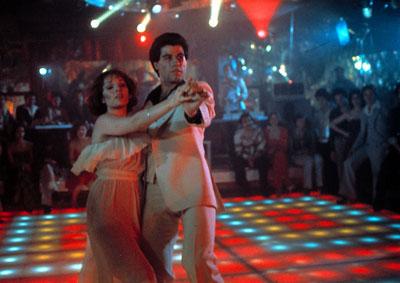Following the Vietnam War and Watergate, and faced with a slide into national economic torpor, American popular culture of the 1970s understandably indulged in various modes of escapism and spectacle. A signature cultural category of the time was “disco,” the glamorized practice of public dancing to recorded music in a hyper-theatrical public space. The trend took off in devastated neighborhoods of New York City as an affordable, welcoming outlet for the working class, gays and people of color, but quickly developed cache, spawning exclusive clubs and (significantly) a nationwide media craze holding urban and rural youth in its mass-mediated thrall—if only for a few years. Feature films running concurrently with the nationwide trend offered dramatic and comedic depictions of the emergent lifestyle, simultaneously picking up and offering cues about what supposedly made its adherents cool and free. These films, functioning as entertainment and reportage, encapsulated the sights and sounds of a self-conscious juggernaut, and offer valuable information about bourgeois disaffection, class aspiration, racial interaction, sexual mores, and the role of pop culture in the 1970s.
Check out the Los Angeles Times preview, "Classic Hollywood: Disco Era Flared, Then Fizzled."






 Mobile Navigation
Mobile Navigation







